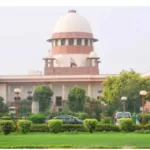In a significant development, the deputy registrar of T ward, M B Mhaske, issued a stern circular to committee members of housing societies in Mumbai. The circular serves as a stark warning, emphasizing that these committees may face severe legal consequences if they engage in discriminatory practices while granting membership based on factors such as language, caste, religion, and gender.
This directive comes in the wake of a complaint filed by Trupti Devrukhkar, who alleged discrimination in her pursuit of office space within a housing society solely because of her Maharashtrian heritage. The deputy registrar’s office has clarified that any form of discrimination or the imposition of impractical restrictions or conditions goes against the Indian constitution and the Maharashtra Cooperative Societies Act of 1960. Legal experts assert that the registrar holds the authority to grant membership to individuals who have faced such discrimination, in full compliance with established legal provisions.
Vinod Sampat, the president of the Cooperative Societies Residents and Users Welfare Association, emphasized the fundamental principles of equality before the law and equal protection under the constitution, which apply to a democratic country like India. He pointed out that, in certain territories like Kashmir and Himachal Pradesh, the right to purchase and use property for personal use, subject to reasonable restrictions such as refraining from commercial activities in residential areas, has been unequivocally granted. Thus, it is illegal to discriminate against individuals based on factors such as caste, creed, or gender, and to impose unreasonable restrictions on potential property buyers.
Vikramaditya Dhamdhere, the General Secretary of the Federation of Grantees of Government Lands, an association representing housing societies on collector lands, recounted a recent incident in which the chairman of a Mulund society refused to offer a house to a Maharashtrian woman. After the incident, activists from the Maharashtra Navnirman Sena (MNS) intervened, compelling the society’s office-bearers to apologize. Dhamdhere expressed concern over such incidents occurring in societies where Maharashtrians have historically not discriminated against members on such grounds. He called for serious government intervention, highlighting that neither the Bye Laws nor the Maharashtra Cooperative Societies Act contains any provision for such discriminatory practices.
Sampat mentioned that exceptions exist, such as Parsi colonies in Dadar, where Parsis can purchase property due to the land being owned by the Parsi trust. However, in the absence of specific exceptions, individuals interested in purchasing flats are generally granted blanket permission and protection under the law. Any attempts to prohibit such rights are deemed unlawful, and Sampat urged the initiation of both civil and criminal actions against managing committees involved in discriminatory practices and dictatorial actions.
Dhamdhere shed light on the magnitude of the issue, citing over 2 lakh housing societies in Mumbai. He called upon the Co-operative Department of Maharashtra to formulate stringent rules within the Bye Laws and Maharashtra Cooperative Societies Act, preventing managing committees of housing societies from arbitrarily framing rules to suit their convenience. He emphasized that despite India’s Prime Minister promoting the idea of “Vasudhaiva Kutumbakam” (The world is one family) as a central tenet of government policies, discriminatory practices within housing societies persist.




